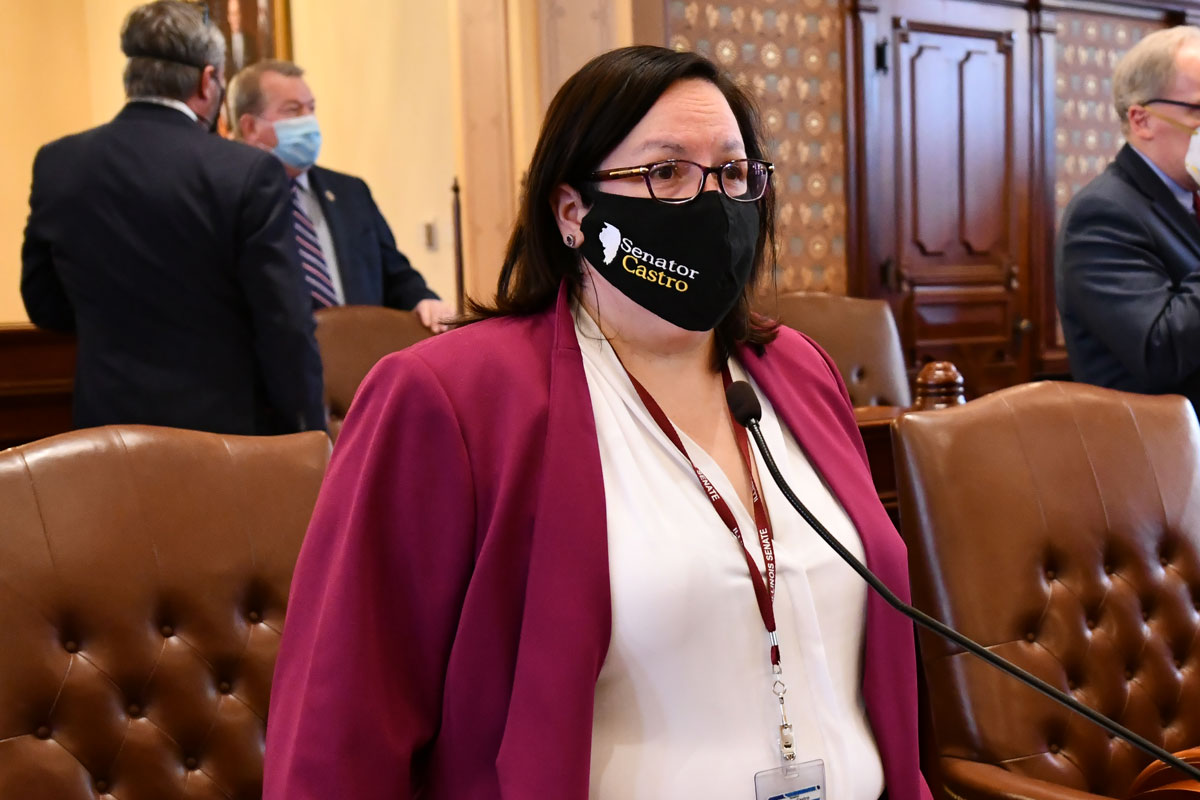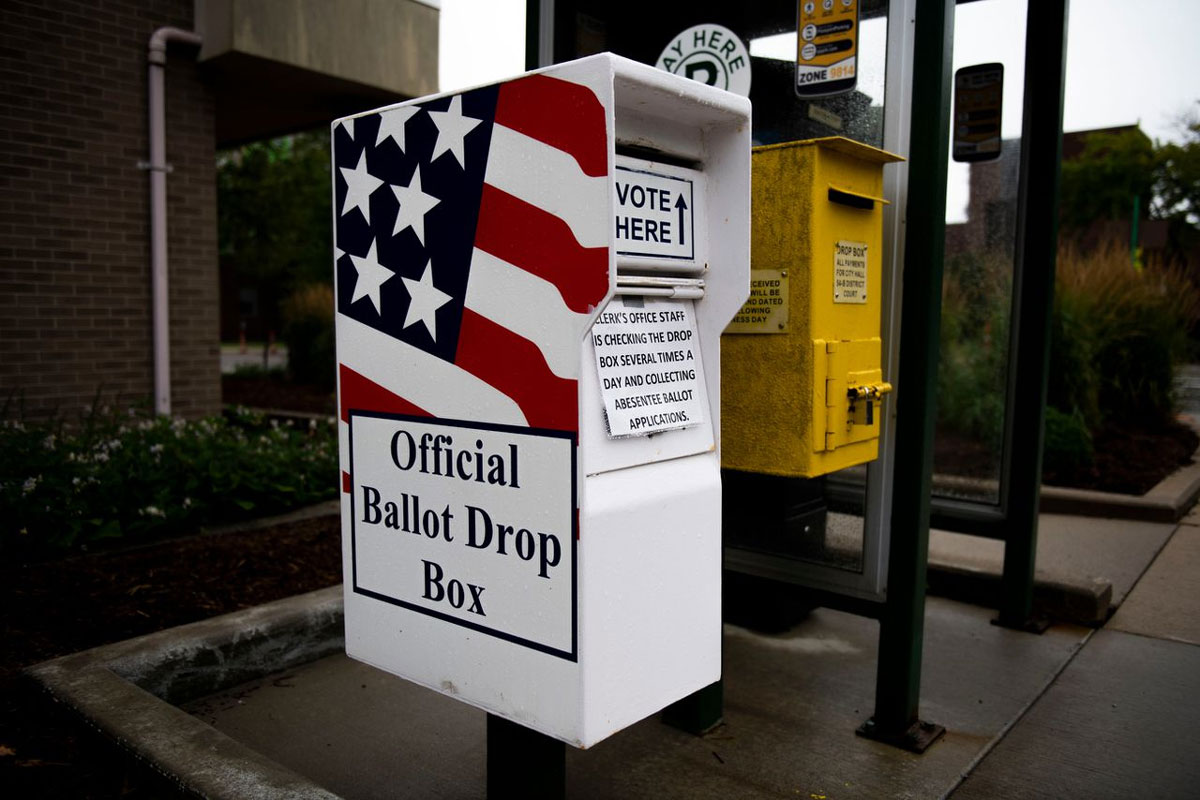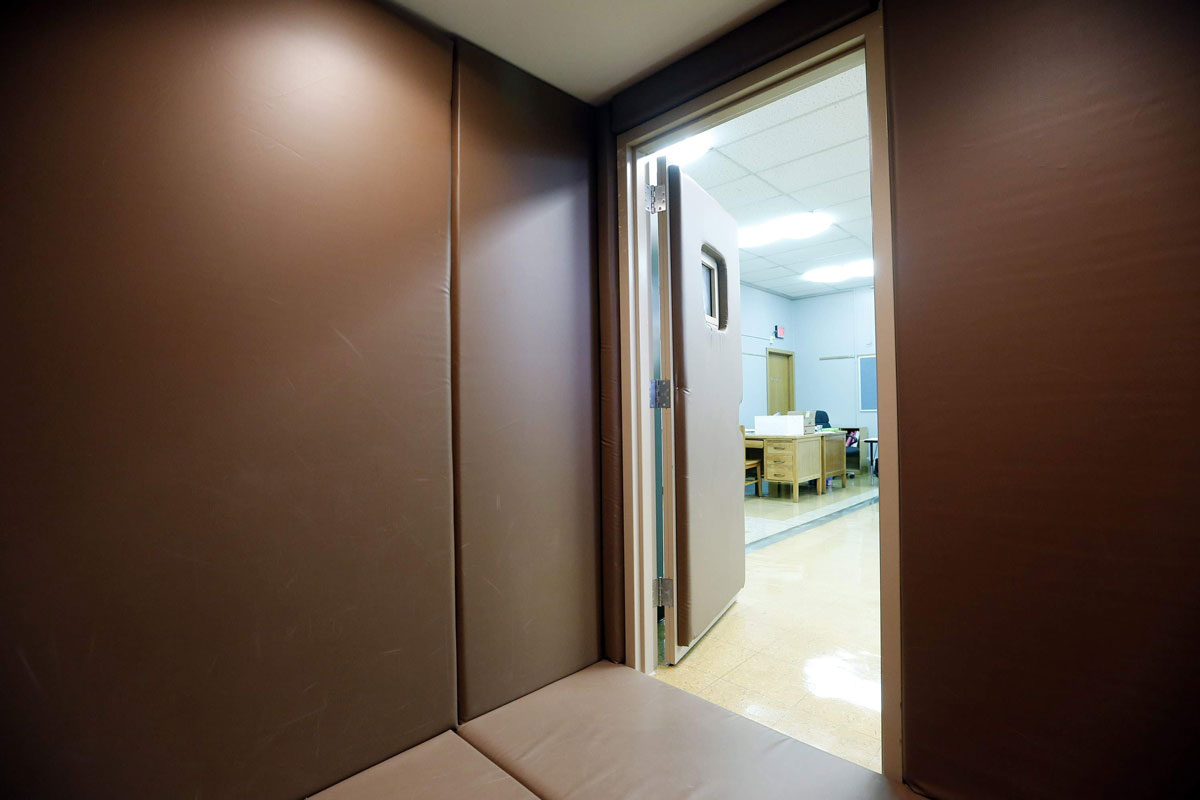- Details
- Category: Senator Mattie Hunter News
 SPRINGFIELD – Following a year of grave racial injustice and the tragedies of the continuing COVID-19 pandemic, State Senator Mattie Hunter (D-Chicago) passed legislation out of the Illinois Senate aiming to improve equity in the state health care system.
SPRINGFIELD – Following a year of grave racial injustice and the tragedies of the continuing COVID-19 pandemic, State Senator Mattie Hunter (D-Chicago) passed legislation out of the Illinois Senate aiming to improve equity in the state health care system.
“For weeks upon weeks, we’ve listened to health care experts break down all the disparities in our health care system that exist for Black, Brown and low-income Illinoisans,” Hunter said. “Everyone deserves the same access to health care, regardless of race or socioeconomic status. This measure is meant to ensure the health care system will be centered fully on the needs of the patients.”
Read more: Hunter passes legislation to eliminate health care disparities for people of color
- Details
- Category: Senator Robert Peters News

SPRINGFIELD – The Illinois Senate passed a sweeping criminal justice reform package Sunday as part of a larger plan authored by the Illinois Legislative Black Caucus to rid Illinois of systemic racism. The package included the elimination of cash bail, an issue for which State Senator Robert Peters (D-Chicago) has been fighting for years.
“For too long, people in this state have spent time in jail only because they could not afford to pay their bail,” said Peters, who was recently elected Chair of the Senate Black Caucus. “The end of that practice is near. I’m thrilled that ending cash bail was part of the package we passed today, and I look forward to similar action from the House.”
Earlier this year, Peters filed Senate Bill 4025, known as the Pretrial Fairness Act, which was then folded into the criminal justice reform package. This portion of the bill eliminates cash bail as an option for pretrial detention and provides a presumption of pretrial release for all criminal defendants. The court retains the right to deny release under certain circumstances, pending the outcome of a hearing.
Read more: Peters celebrates ending cash bail as criminal justice package moves to House
- Details
- Category: Senator Cristina Castro News
 SPRINGFIELD – In an effort to deliver social equity in cannabis licensing, State Senator Cristina Castro (D-Elgin) passed a package to follow-up on 2019’s legalization measure through the Senate this evening.
SPRINGFIELD – In an effort to deliver social equity in cannabis licensing, State Senator Cristina Castro (D-Elgin) passed a package to follow-up on 2019’s legalization measure through the Senate this evening.
“During these impactful times, as the General Assembly works to pass the Black Caucus pillars to rid Illinois of systemic racism, it’s important to ensure social equity in other areas of society as well, and a good place to start is with cannabis dispensaries,” Castro said. “This legislation helps address some shortcomings of the original law that are preventing it from being as successful as it could be.”
Among the fixes, the measure:
- Creates the Tiered Applicant Lottery and Qualified Applicant Lottery, which determine the circumstances under which an entity might be awarded a dispensary license;
- Allows cannabis containers to be resealable;
- Allows people to begin working at a cannabis dispensary while their background check is being processed.
- This allows the individual to begin working immediately. Should they fail the background check, they will be immediately terminated.
“The main goal here is to get more licenses out the door and into the hands of socially equitable applicants,” Castro said. “This plan adds more validity to Illinois’ already strong claim to being the industry leader in cannabis legalization that other states can seek to model their programs after.”
State Senator Kimberly Lightford (D-Maywood), the Chair of the Illinois Legislative Black Caucus, helped Castro move the measure through the Senate and stressed its importance in ensuring social equity and delivering the justice Black and Brown communities have been in need of for generations.
“Black and Brown communities suffered for decades under the War on Drugs. We saw our sons, brothers, and fathers go to prison and violence tear apart our communities,” Lightford said. “Now that we’ve legalized cannabis, we need to be make sure the benefits go to people in our communities to help us heal.”
The legislation is House Bill 122. Having passed the Senate, it must now return to the House for a vote of concurrence.
- Details
- Category: Senator Laura Murphy News
 SPRINGFIELD – To ensure Illinoisans experience no gap in support during the continued COVID-19 crisis, State Senator Laura Murphy (D-Des Plaines) is sponsoring a bill to extend a number of state pandemic relief provisions put in place by the General Assembly last May.
SPRINGFIELD – To ensure Illinoisans experience no gap in support during the continued COVID-19 crisis, State Senator Laura Murphy (D-Des Plaines) is sponsoring a bill to extend a number of state pandemic relief provisions put in place by the General Assembly last May.
“With the vaccine distribution process now underway, there is a light at the end of the tunnel—but the pandemic is by no means behind us, and many Illinoisans are still struggling,” Murphy said. “This bill allows Illinoisans to continue to depend on the relief measures already in place for as long as they are needed.”
Read more: Murphy spearheads COVID-19 relief extension package
- Details
- Category: Senator Sara Feigenholtz News
 SPRINGFIELD – In response to the hard hitting impact of the pandemic, State Senator Sara Feigenholtz (D-Chicago) crafted, sponsored and passed a relief package to provide a lifeline to a struggling industry.
SPRINGFIELD – In response to the hard hitting impact of the pandemic, State Senator Sara Feigenholtz (D-Chicago) crafted, sponsored and passed a relief package to provide a lifeline to a struggling industry.
“In May, we passed a bill allowing cocktail delivery for the bar and restaurant industry, which helped them recoup some of the lost income caused by COVID-19,” Feigenholtz said. “Today we extended this ability to other retail establishments. Alcohol sales make up a large portion of revenue for our eating, drinking and retail establishments."
House Bill 3393, known as the COVID-19 Hospitality Recovery Act, extends the quickly-approaching sunset on cocktail delivery, permits retailers to use credit cards for payment to distributors, and crafts a limited exemption on indirect donations for not-for-profit entities of fixtures and equipment. The package also clarifies laws around permitted delivery.
“These are common sense policies crafted with a great deal of input from industry stakeholders,” Feigenholtz said. “When this legislation becomes law, it will provide restaurants, bars and retailers with additional tools for cash management, as well as flexibility to indirectly accept items such as tents, warmers and other equipment needed to attract customers to outdoor dining.”
The package passed the Senate with unanimous support, and will be sent to the House for a concurrence vote.
- Details
- Category: Senator Julie A. Morrison News
 SPRINGFIELD – A safer way to turn in vote-by-mail ballots may soon be on its way to counties across the state after State Senator Julie Morrison (D-Lake Forest) successfully championed a measure to implement more secure drop boxes.
SPRINGFIELD – A safer way to turn in vote-by-mail ballots may soon be on its way to counties across the state after State Senator Julie Morrison (D-Lake Forest) successfully championed a measure to implement more secure drop boxes.
“We should make it simpler to vote – even in a non-COVID world,” Morrison said. “Everyone should have a safe and secure way to cast their ballot.”
House Bill 3994 would allow election authorities to establish permanent ballot drop boxes to accept vote-by-mail ballots. Election authorities would be able to receive reimbursement through the federal Help America Vote Act to pay for the boxes.
- Details
- Category: Senator Ann Gillespie News
 SPRINGFIELD – To end the abuse of seclusion rooms in public schools, State Senator Ann Gillespie (D-Arlington Heights) passed a measure in the Illinois Senate that would ban the use of prone restraint.
SPRINGFIELD – To end the abuse of seclusion rooms in public schools, State Senator Ann Gillespie (D-Arlington Heights) passed a measure in the Illinois Senate that would ban the use of prone restraint.
“With students beginning to return to physical classrooms, our children should not fear that their basic dignity will be stripped away,” Gillespie said. “I remain committed to ending the inhumane practice of prone restraint and the abuse of seclusion rooms.”
Previously filed under Senate Bill 2315, the legislation now moves under House Bill 2263. Current law allows school staff to isolate a student if they pose a danger to themselves or others. However, a Chicago Tribune and ProPublica Illinois investigation revealed that isolation rooms are often used as a punishment for refusing to do classwork, swearing and other behavior that does not pose a threat to safety.
ISBE issued rules to only allow timeouts with a trained adult in the room, an unlocked door and “only for therapeutic reasons or protecting the safety of students and staff.” These emergency rules, however, will expire 150 days after implemented.
House Bill 2263 passed the Illinois Senate and awaits consideration in the Illinois House.
- Details
- Category: Senator Steve Stadelman News
 SPRINGFIELD – State Senator Steve Stadelman (D-Rockford) voted for a comprehensive measure to focus on achieving racial equity within education Monday.
SPRINGFIELD – State Senator Steve Stadelman (D-Rockford) voted for a comprehensive measure to focus on achieving racial equity within education Monday.
“When you focus on making a more inclusive education system, everyone benefits,” Stadelman said. “This legislation will help even the playing field for students who may need additional resources.”
The overhaul of the state’s education system will require the Professional Review Panel to review funding adequacy target calculations, racial equity, and whether funding goals are sufficient, among other things.
“There is no excuse for any child in the state to not reach their full potential solely because their ZIP code, socioeconomic background or the color of their skin,” Stadelman said. “Providing necessary services at an early age will ensure better educational outcomes for the entire state.”
The bill creates new programs to support education from early childhood to college. Students entering kindergarten would be more rigorously assessed for academic, social and emotional development skills. The state's standards for high schools would be revised to ensure more students are able to attend college. Other measures include a six-week summer program to help students in poverty and the creation of a task force to support equitable environments in Illinois schools.
enhancing programs to keep
The measure, House Bill 2170, has passes both chambers. It will now go to the governor’s desk for further consideration.
More Articles …
Page 538 of 728












 © 2025 Illinois Senate Democratic Caucus
© 2025 Illinois Senate Democratic Caucus